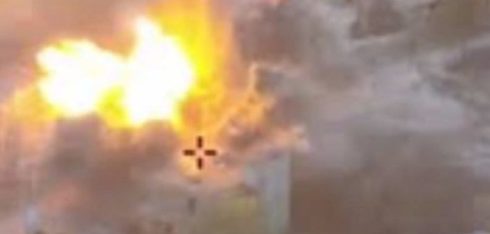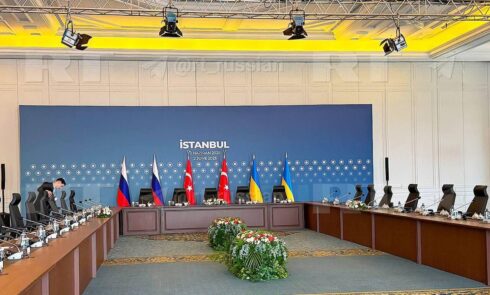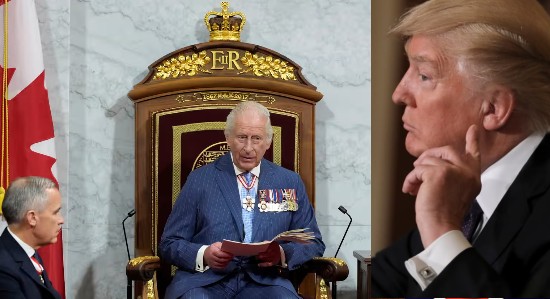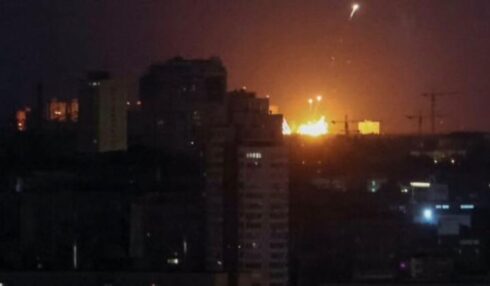In a significant escalation of hostilities, Israel’s launched a series of airstrikes on southern Lebanon on Sunday, claiming the action was a “preemptive” measure to thwart an imminent attack by Hezbollah on northern Israeli towns. The Israeli Defense Forces (IDF) reported that they had detected Hezbollah’s preparations for an attack and acted swiftly to prevent it. The strikes targeted Hezbollah launch sites and military positions near the border, with Israeli officials stating that over 100 jets were involved in the operation.
The airstrikes represent a continuation of the ongoing conflict between Israel and Hezbollah, which has intensified since the onset of Israel’s war on Gaza in October. Israel’s actions appear to be in response to a perceived threat, as the IDF emphasized the importance of protecting Israeli civilians from potential harm. The Israeli Defense Minister, Yoav Gallant, declared a nationwide “special situation” for 48 hours, underscoring the gravity of the situation.
Hezbollah’s Retaliation and Escalating Tensions
In a swift retaliation, Hezbollah launched over 320 Katyusha rockets targeting Israeli military bases and barracks, including the Meron base and several locations in the occupied Golan Heights. This marked the first phase of what Hezbollah described as a retaliatory operation following the killing of their commander, Fuad Shukr, at the end of July. The Lebanese group has vowed to continue its operations, raising concerns about further escalation.
The exchange of attacks between Israel and Hezbollah has been ongoing for months, but the intensity of Sunday’s events has significantly heightened tensions. Hezbollah’s response, which it framed as a retaliation for targeted killings, was anticipated by many analysts. The situation on the ground has become increasingly volatile, with both sides engaging in a dangerous tit-for-tat cycle that shows no signs of abating.
The Risk of Broader Conflict
The recent escalation has led to growing concerns that the conflict could spiral out of control and expand beyond the current theaters of war. The border area between Israel and Lebanon has been heavily militarized and repeatedly struck by Israeli forces in recent months, making it a focal point of the conflict. The situation has also impacted civilians, with Israel’s imposing restrictions in northern regions and temporarily closing Ben Gurion airport.
While Hezbollah has hinted that its retaliatory actions are far from over, the Israeli government has made it clear that it will continue to act in self-defense. Prime Minister Benjamin Netanyahu emphasized Israel’s determination to protect its citizens, warning that those who harm Israel will face severe consequences. As the conflict continues to simmer, the international community is closely monitoring developments, with fears that the situation could lead to a wider regional war if not contained.
Rising Tensions: Israel-Hezbollah Conflict Escalates
The Israeli military has confirmed that most of its recent attacks have been concentrated in southern Lebanon, where Hezbollah, the militant group, holds significant sway. Despite this localized focus, the military has made it clear that it will strike anywhere that poses a threat to Israel’s, reflecting a broader strategy aimed at deterring potential aggressors across the region. This development comes amidst heightened global concerns over the possibility of a full-scale regional conflict, particularly following the assassinations of Hamas political chief Ismail Haniyeh in Tehran and Hezbollah leader Shukr in Beirut last month, both incidents widely attributed to Israeli actions.
The current situation is fraught with uncertainty as analysts, like Sami Nader, director of the Levant Institute for Strategic Affairs, warn of the potential for these skirmishes to escalate into a broader war. Nader told Al Jazeera that while both sides seem intent on avoiding a full-blown war, the ongoing hostilities have the potential to engulf the entire region in conflict. The international community watches closely, aware that any miscalculation could lead to widespread violence.
U.S. Support and Diplomatic Efforts Amidst Conflict
In the face of escalating tensions, the United States has reiterated its unwavering support for Israel’s right to self-defense. This stance was underscored by a statement from U.S. National Security Council spokesman Sean Savett, who emphasized that under President Joe Biden’s direction, senior U.S. officials have been in continuous communication with their Israeli counterparts. The U.S. administration’s position has been clear: Israel’s has the right to defend itself against any threats, a message that has been consistently conveyed through diplomatic channels.
Meanwhile, diplomatic efforts to resolve the conflict have been ongoing, with Egypt hosting a new round of talks aimed at bringing an end to Israel’s war on Gaza, now stretching into its 11th month. Despite these efforts, there seems to be little progress toward a ceasefire. Hezbollah has indicated that it would halt its actions if a ceasefire were to be agreed upon, yet Israel remains resolute in its approach. As Sami Nader pointed out, Israel is determined to change the current rules of engagement, with the goal of ensuring the safe return of all Israelis who were evacuated from northern Israel. The prospect of a diplomatic resolution appears dim, with both sides preparing for the possibility of prolonged conflict.














